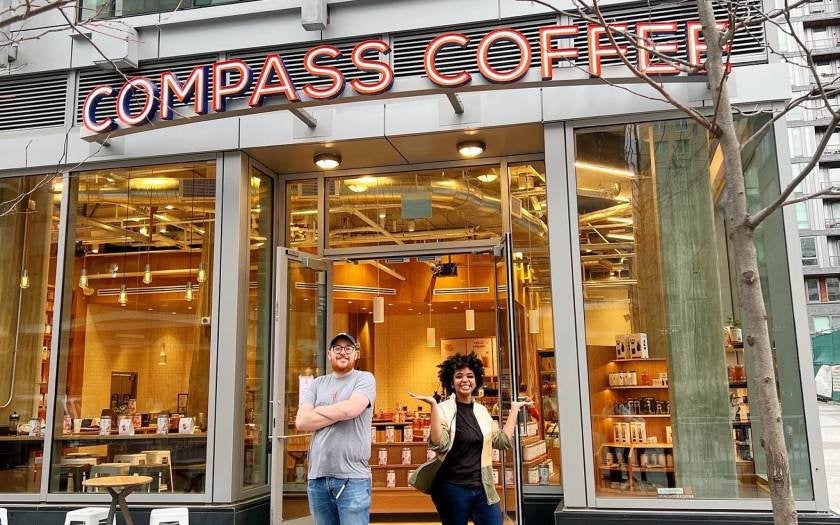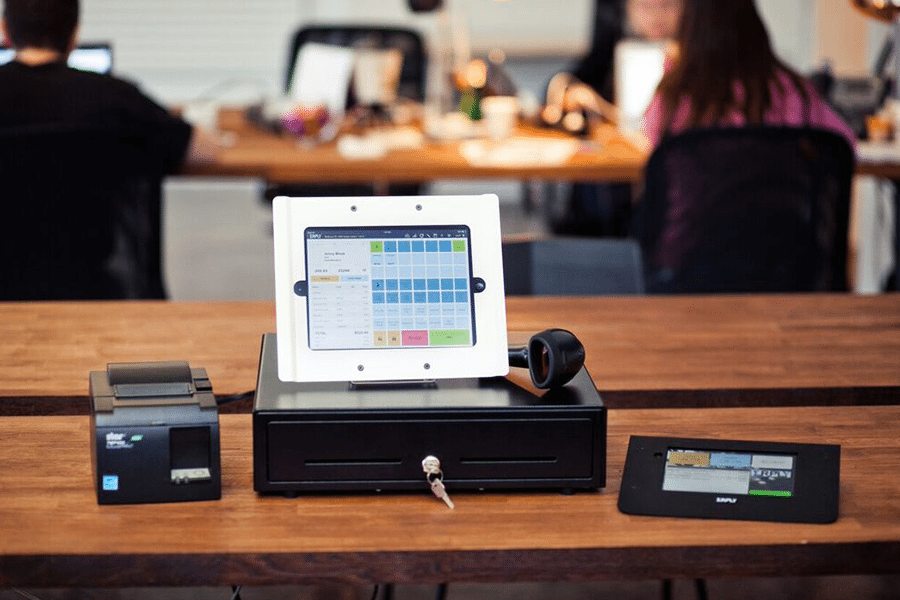A restaurant incubator, also known as a food or culinary incubator, is a centralized physical facility or program that aims to support the development and growth of restaurant and food business concepts. Food incubators are important, as they deliver necessary tools, resources, and guidance to new restaurant owners. They also foster mentorship to these new business leaders, so as the business grows, it can grow in a stable and sustainable manner.
Below, we explore how restaurant incubators work and detail why one may be a good fit for you.
How Do Restaurant Incubators Work?
The main goal of a restaurant or food incubator is to help your business grow while complying with local regulations. Moreover, incubators help connect you with professionals who can help take your product offering to the next level. Networking, legal assistance, market testing, and business support are just a few of a restaurant incubator’s offerings.
The needs of your business will determine the incubator you choose to work with. For example, many food incubators provide support to consumer packaged goods (CPG) companies, as these businesses can be very expensive to start. Restaurant incubators can also be programs, offering guidance to new restaurants. Culinary incubators also give you access to a commercial kitchen incubator space, relieving the need for initial capital investment in a space.
Common Culinary Incubator Costs
The cost of working with a culinary incubator can. The three most common are as follows:
- Location fee-based: If a restaurant is using a physical space, then a monthly fee is often associated with said space. The price of this can vary by the incubator; generally, the larger your city, the pricier they get. A typical range is $500 to $2,000.
- Full incubation fee: An all-inclusive fee for the program can also be implemented—you pay for the services and perks of the incubator on a monthly basis. This fee applies to a program rather than a physical space.
- Revenue sharing: Another popular model for incubators is a revenue share model. This is where an incubator takes a share of all of your sales, typically 5% to 10%. This can be lucrative, as it incentivizes the incubator to pursue your success.
Where to Find Restaurant Incubators
Restaurant incubators are best found through industry connections or online communication. A quick Google search can net you a lot of results in your area. Business development centers, local government-led agencies, and trade shows are other options. You can also join a group like the American Culinary Federation (ACF) as well as online food industry Facebook or LinkedIn groups. If you work near a major urban area, finding a restaurant incubator will not be that difficult.
Below is a list of some food incubator examples in major cities across the US:
- La Cocina, San Francisco, CA
- Hatch Kitchen, Richmond, VA
- Commonwealth Kitchen, Boston, MA
- Union Kitchen, Washington, D.C.
- Hot Bread Kitchen, New York, NY
- Chobani Incubator, New York, NY
- Crafted Kitchen, Los Angeles, CA
- WNY Food Incubator, Buffalo, NY
- Capital Kitchens, Austin, TX
- The Food Foundry, Chicago, IL
How to Work With a Restaurant Incubator
It can be a little intimidating when starting with a restaurant incubator program, as it can seem like a complex process. But it is actually quite simple once you understand the ins and outs. Below, we outline what the process is like and what to expect when working with a restaurant incubator.
1. Application Process
Once you have a culinary incubator (or several) in mind, the application process typically involves sharing your food business’ goals, scope, and expected needs. If you are applying to a physical space, sharing the size of space you need will also be required.
The application approval is left to the incubator’s management. The incubator managers typically look for the business’s readiness, potential for innovation, and overall prospective success to gauge if the business will be a fit for the incubator.
2. Facility Access (If Involving Physical Location)
Once your application is accepted, you will be given a tour of your facility. In this part of the process, you will understand the tools at your disposal, the space you have access to, and other valuable resources such as cleaning and packaging supplies. You will see the facility’s key parts, such as receiving and delivery doors and employee access entrances.
3. Mentorship & Training Services
One of the many benefits of a culinary incubator is the mentorship and training it provides. Workshops on food safety, good manufacturing processing, marketing strategies, and financial education are all included in incubator workshops. The incubator may also provide one-on-one guidance for business owners who need more in-depth training and mentorship. This type of advice can be invaluable for new restaurateurs or new managers launching a food business.
4. Business Support
Another key service an incubator provides is guidance on the different aspects of running a business—for example, legal counsel and compliance with regulatory bodies/agents such as the health inspector. One of the major barriers to new food business entrepreneurs is the ability to adhere to local regulations and be in “good standing” legally, and an incubator can be a key tool in this regard.
When you use physical space, the upkeep of common areas and key equipment are often also managed by the incubator.
5. Networking & Market Testing
Networking and market testing are two crucial aspects of working with a restaurant incubator. I cannot stress enough how invaluable these two components are, as connecting with producers and customers in the food industry is vital to long-term success.
What is nice about market testing is that it allows you to get feedback on your core product before selling it. This period of receiving feedback is vital and can lead to the betterment of your product, which will make it accepted on the market and at scale.
6. Scaling & Growth
As your business is built within the incubator, its scale and scope will grow. After all, the point of an incubator is to grow a business sustainably. Food incubators serve as the bridge between an entrepreneur and their idea—allowing the business idea to be realized and brought to a customer base. Some aspects of scaling include helping secure more funding, finding a permanent location for the business to live in, and expanding business channels.
7. Graduation
The end goal of a culinary incubator is, at some point, to allow the business to flourish on its own. There will be terms, revenue amounts, or other benchmarks within the agreement with your food incubator that will let you “graduate” and no longer be under their mentorship or facilities. Many restaurant incubators will maintain a network of alumni for networking and problem-solving and will often keep businesses that have used their program up to date on opportunities.
Who Should Use a Restaurant Incubator?
The use of a culinary incubator will depend on your business’s goals, your experience, and your startup capital. It is important to recognize when an incubator is needed, as they do have a cost associated with them. Below are some suggestions on who should use a culinary incubator.
- Culinary startups: Smaller food companies, especially those with packaged goods, will thrive in an incubator. This is due to the cheap costs and necessary infrastructure an incubator provides for new owners to get their businesses up and running.
- Food trucks: Food incubators are a great way to grow a food truck business. Business support, extra prep space, and legal help are all catalysts for growth for burgeoning food truck businesses.
- New restaurant concepts: It is ideal to have the tools to market test and flesh out a restaurant idea. Food incubators offer this opportunity for new businesses, and it is especially important when finalizing a new restaurant concept.
- Baked goods businesses: For many bakery businesses, it is not required to have much customer-facing real estate. A food incubator delivers key tools, such as ovens and prep space, and helps you connect with customers and local businesses for B2B sales.
- Catering businesses: The space an incubator provides access to, along with low costs, makes it ideal for catering businesses. With all of the cooking tools and prep space secured, building out a catering business becomes efficient.
- CPG additions: Many restaurants aim to create revenue channels by selling items such as jarred sauces or pickles. Using an incubator to branch out the business is an excellent idea.
- Ghost kitchens: A culinary incubator can be the bedrock of a ghost kitchen business. With online connectivity the only real guest requirement, an incubator can be easily used to grow a successful ghost kitchen concept.
- New owners or owners new to an area: If you are just starting a food business, then a food incubator has the tools you need to learn and succeed. Additionally, if your business is new to an area, an incubator can help you grow while integrating you within your local community.
Restaurant Incubator Case Study
I personally worked in a culinary incubator in 2022. I worked out of Union Kitchen in Washington, D.C. One of the biggest success stories out of the kitchen was Compass Coffee, a business with a large footprint in the Washington, D.C., area. It went from batch manufacturing in the shared space to 18 cafes and a giant, 50,000 sq. ft. roastery.
The business scaled in the production kitchen of Union Kitchen and used the many resources at its disposal to ensure success. Here is a quote from Union Kitchen on how Compass used the incubator to its full effect:
“Compass found themselves at home among a community of like-minded entrepreneurs all working towards similar goals and sharing lessons learned at Union Kitchen. Michael and Harrison leveraged every aspect of Union Kitchen from scaling production in our shared kitchen, growing sales and connecting with local accounts through our distribution, and finding product market fit in our stores. They also worked closely with the Union Kitchen Accelerator team on their mission, strategy, and products.”
As you can see, a kitchen incubator such as Union Kitchen can help a food business grow from an idea into a real business with tangible assets and a ton of success through different revenue channels. This is the culinary incubator model at its best, launching brands to the next level by giving them key resources and assistance in the early phases of their development. Compass Coffee is an example of a business idea flourishing into a profitable, expansive coffee business with the support of a restaurant incubator.

Restaurant Incubator Pros & Cons
| Pros | Cons |
|---|---|
| Lower startup costs in most cases | Shared space in the physical location |
| Robust tools and network at your disposal | Dependent on the quality of the incubator |
| Ability to test products at the market | Costs associated with using the service can be taken by a percentage of sales |
The benefits of an incubator include many cost-saving measures. A restaurant incubator breaks down many of the barriers a new restaurant or food business will face, specifically when it comes to physical space, legal counsel, and regulatory adherence. Furthermore, the tools used to market and grow your business are valuable and take a long time to produce on your own. The structure, support, and investment into success are what make culinary incubators so promising.
Of course, food incubators do have some drawbacks. For physical kitchens, sharing a space can be tricky, and you rely on other tenants to help keep the space in order. The quality of the incubator and how it invests in your business can vary, leading to mixed results. Additionally, having to share a percentage of sales or the cost associated with using an incubator can add up over time.
Frequently Asked Questions (FAQs)
Food incubators may be a new concept to some in the industry. Below are some of the most commonly asked questions associated with restaurant incubators.
Last Bite
Food incubators are useful, highly valuable tools within the food industry. They help businesses get started, create robust operating procedures, and help guide businesses to success in the market. Restaurant incubators are a great resource for budding food entrepreneurs, and with the right research, you can find reliable ones in your area. If you are a new food business, a culinary incubator can be just the tool you need to bring your business to the next level.
ALSO READ



